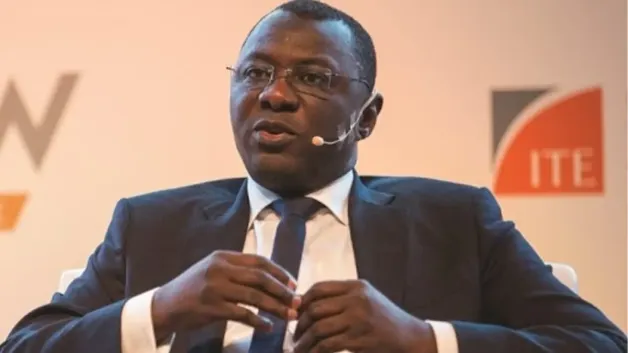The outgoing government has, in recent days, presented a narrative of economic resurrection that demands careful scrutiny.
Finance Minister Dr. Mohammed Amin Adam’s final economic assessment reads like a carefully choreographed performance—highlighting selective metrics while obscuring deeper structural challenges.
The headline figures are seductive: international reserves climbing to US$8billion, economic growth averaging 6.3 percent, and inflation retreating from that mountain top of 54 percent in December 2022 to a more “manageable” 23 percent as at last month.
These numbers suggest a phoenix-like recovery from the economic turbulence of recent years. Yet, beneath this glossy veneer lies the true state of the economy.
The benchmark monetary policy rate is almost three times the central bank’s upper target and average borrowing rate remains above 30 percent.
The incoming government faces over US$4billion in repayments in the medium term, with massive energy sector legacy debt in excess of US$2billion, lack of access to external capital markets, and considerable rates of unemployment which cannot credibly claim robust health.
The Bank of Ghana’s requirement of GH¢70billion for recapitalisation speaks to fundamental institutional fragility rather than strength.
The sight of Korle Bu Teaching Hospital, in the year it turned 100, is enough to make one gravely ill and the infamous Agenda 111 facilities are up in limbo.
What the outgoing administration presents as strategic management looks increasingly like fiscal sleight of hand. The ability to marginally improve some indicators does not constitute sustainable economic transformation. It is almost like the proverbial well-dressed monkey.
Let’s be honest, Ghana remains vulnerable, with its economic recovery balanced precariously on a knife’s edge.
John Mahama’s incoming administration inherits a poisoned chalice. The challenge will not be mere maintenance but radical reconstruction.
Continuing the current government’s policies—as Dr. Amin Adam has suggested—seems less like prudence and more like perpetuating a potentially dangerous status quo.
The most telling metric might be what remains unspoken: the human cost of these economic gymnastics.
Behind these percentage points are real Ghanaians struggling with persistent economic uncertainty, limited access to credit and incomplete public infrastructure.
It might seem like an overstatement, but it was only a few short months ago that the head of a medical facility which caters for children spoke of increased infant mortality due to malnutrition. This was corroborated by a study conducted by a health-focused NGO.
Ghana’s economic narrative cannot be reduced to a spreadsheet. It requires a holistic approach that addresses systemic weaknesses, promotes genuine structural reforms and prioritises inclusive growth. The next administration must look beyond cosmetic improvements to implement meaningful, sustainable economic strategies.
At this critical juncture, the country needs more than statistical optimism. It requires bold, transparent and innovative economic leadership that recognises both the progress made and the significant challenges that remain.
The nation’s economic story is still being written. And the next chapter depends not on rhetoric, but on realistic, compassionate and strategic governance.










